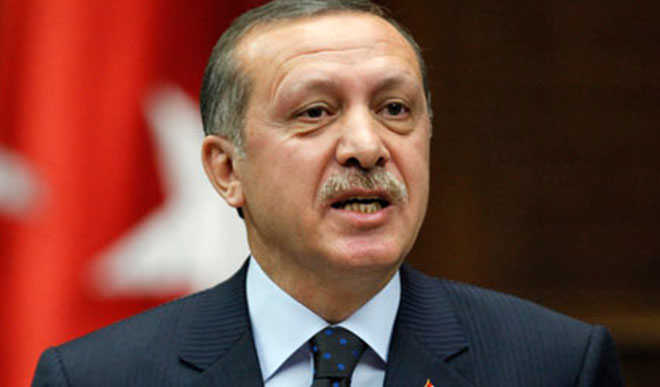A new kind of international despotism
The European Union EU, and the North Atlantic Treaty Organization NATO, countries have spoken openly of their concerns that the Turkish President Mr Recep Tayyip Erdoğan is leading his country down an increasingly authoritarian path and has used the failed coup attempt against him last July as an excuse to stifle dissent. Turkey has accused […]


The European Union EU, and the North Atlantic Treaty Organization NATO, countries have spoken openly of their concerns that the Turkish President Mr Recep Tayyip Erdoğan is leading his country down an increasingly authoritarian path and has used the failed coup attempt against him last July as an excuse to stifle dissent.
Turkey has accused the EU of failing to uphold its side of a deal in which Turkey would stop refugees and migrants from the Middle East heading into Europe in return for the EU granting visa-free travel to Turkish citizens. Political campaigns for Turkey’s referendum scheduled for April next month commenced recently with venues slated in all countries where Turkey has reasonable percentage of Turkish citizens, especially in EU and NATO member countries.
The referendum is to kick start the process of President’s Erdogan transition to full Presidential system of government, seeking emergency powers from parliament to remain in office up onto 2029.
The Turkish parliamentary proceedings early this year succeeded in given two third majority vote to the tenure elongation of President Erdogan, but the referendum was to make confirmation from across Turkish citizens across globe, which of course can be said to be a kangaroo exercise because the umpires of the process only seek for a yes vote.
This planned tenure elongation began in 2014, when President Erdogan embarked on a tour of EU countries and African countries to seek legitimacy to his government, he was in Nigeria and other West African countries in 2015, during former President Goodluck Jonathan’s regime.
The factors working against his campaigns strategy is the fact that divisions have been created among the Turkish people by government authorities through arrests, incarcerations and unlawful detention of innocent citizens of Turkish origin and continuous clamp down on sympathizers of the Hizmet movement.
Ahead of the country’s referendum, political campaign rallies have been slated to hold in various countries in Europe and Africa to secure the votes of its citizen’s residence outside of Turkey. What is surprising is how campaign rallies for Turkey’s selection would be organized in other countries.
However, EU countries are putting up resistance to allow Turkey’s political rallies to hold in designated venues, taking a cue from Netherlands reactions and the stoppage of a Woman minister from entering the country.
Fascism and discrimination are not the same thing as a violation of the provisions of international diplomacy and related conventions with other countries, Turkey has to learn how to respect the laws of other countries, there is absolute disregard and impunity in Turkey and this has been used by Turkish envoys to infiltrate the ranks of government authorities in the EU and the African countries.
Authoritarianism and despotism are great enemies to political and economic development of any Nation; these vices are also at variance with international relations and diplomacy. World leaders seeking for emergency powers and tenure elongations are simply not democratic, securing amendments and parliamentary resolutions to perpetuate your stay in Presidential palaces are strong indications of autocratic rule.
It is therefore surprising that Turkey can accuse other countries of being undemocratic, having wallowed in outright impunity and gross violation of rights and liberties. Recent events are gradually unfolding and exonerating Erdogan’s critics of high-handedness, nepotism and clampdown on opposition and countries with sustainable and enduring democracies.
Uket wrote in from Abuja
